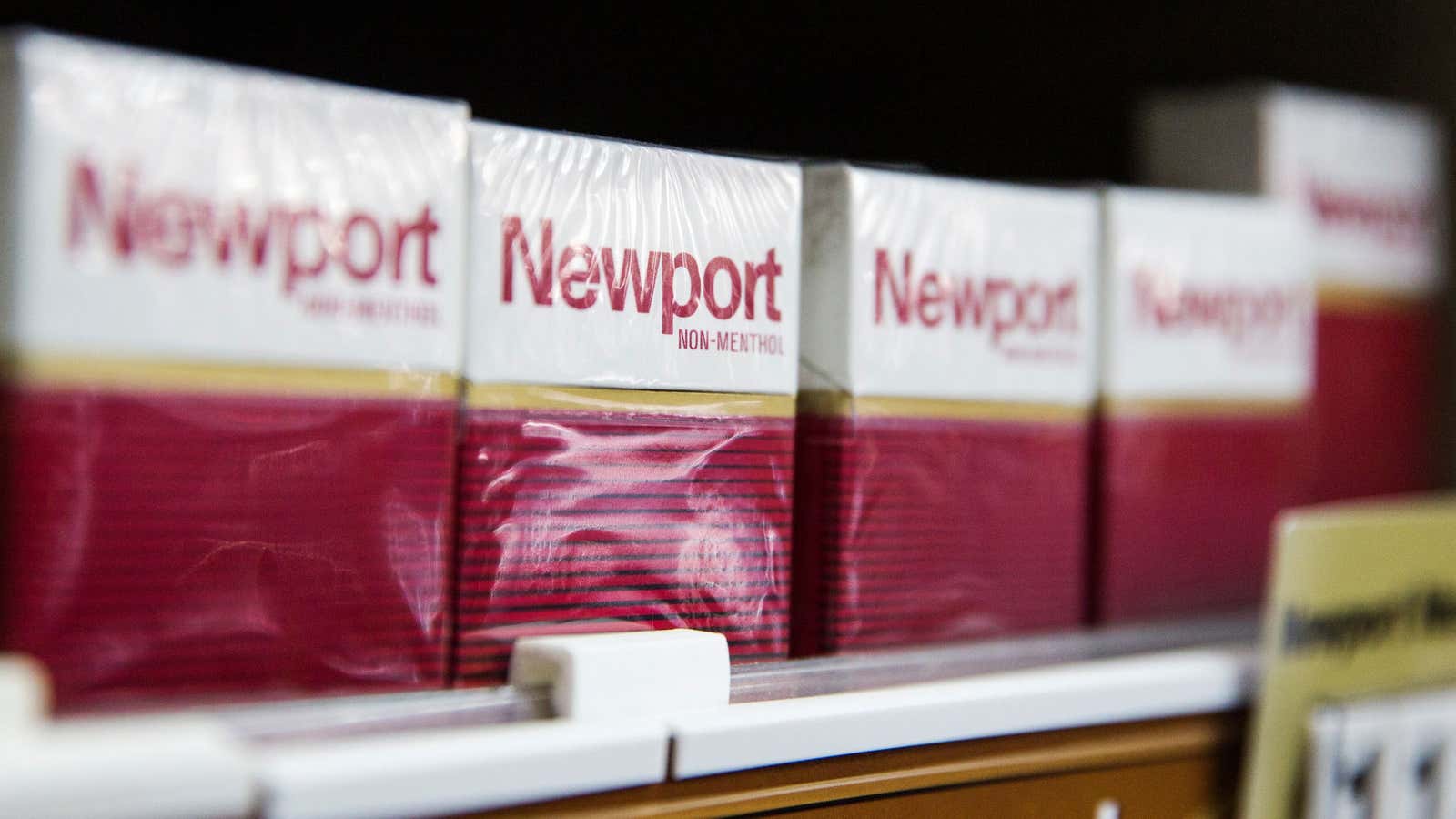It may not affect customers this year, or the next, or possibly even the one after that. But if rumors are true, the days of menthol cigarettes and e-cigarettes could be numbered.
As the Wall Street Journal reports, US Food and Drug Administration (FDA) commissioner Scott Gottlieb may announce sometime this week heavy restrictions on most flavored “vape juices,” banning them from sale at most convenience stores and gas stations in the United States. Online sales will also require more stringent age-verification controls. For now, mint and menthol flavors are exempt—but it’s looking increasingly likely that they’ll soon come under a similar ruling.
Historically, menthol cigarettes have had a reputation—or, at least, a carefully curated image—of being fresher, healthier, and more natural than standard tobacco products. In fact, the opposite seems true. A 2013 FDA study concluded that menthols are harder to quit than regular cigarettes, with the menthol somehow enhancing tobacco’s already addictive qualities. They also seem to be easier to start: Menthol reduces throat irritation caused by cigarette smoke, making them a popular choice with novice smokers.
Just the whiff of a ban, therefore, is bad news for big tobacco. Already, markets are reeling, with British American Tobacco shares tumbling 11% yesterday (Nov. 12), to their lowest point since 2014. A staggering $10 billion of BAT’s market value was wiped out, with investors fretting over the uncertain future of a company which derives around a quarter of its global profit from US menthol products.
Combined, BAT (which makes Dunhill, Kent, Lucky Strike, and Pall Mall, among others), Altria (Marlboro, Parliament, Benson & Hedges, etc.), and Imperial Brands (Kool, Gauoises, Salem, etc.) lost a combined $17 billion in market capital today.
Tobacco manufacturers face indirect impacts of losing their menthol market, as well. A reported 44.5% of African Americans—a demographic with whom menthols are widely popular—would give up smoking altogether rather than switch from menthols. Stores in communities of color that can’t supply their usual customers may cut their losses and sell no tobacco at all.
There’s a small glimmer of hope for big tobacco: Speaking to the Financial Times (paywall), Bonnie Herzog, an industry analyst at Wells Fargo, said the chances of any menthol ban passing were “slim,” given that regulators would likely be concerned about increased black-market activity for the products, as well as the possibility that consumers turned to do-it-yourself alternatives—even more dangerous than smoking corporate-manufactured menthol cigarettes. In short, menthol cigarettes may be at risk, but they haven’t vanished from shelves in a puff of smoke quite yet.
